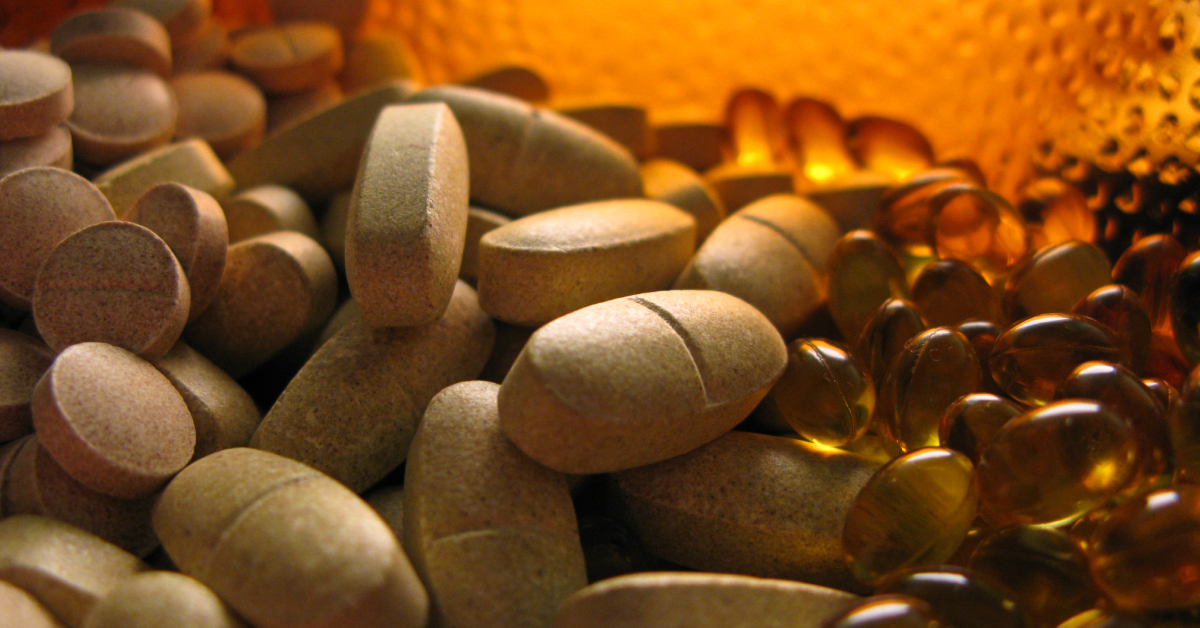
While most vitamin overdoses in children are not harmful, products that include iron can be dangerous. It’s always best to check with a poison center if an exposure has occurred. (Photo credit: Flickr)
Vitamin exposure calls are on in the increase in Texas. Texas Poison Centers have seen a 55 percent increase in exposures to pediatric vitamins, a 35 percent increase in human exposure calls to vitamins overall and a more than 24 percent increase in exposure to melatonin calls from March through June of this year.
“I think this information is very significant as it indicates that perhaps parents are becoming relaxed about leaving medications like vitamins out and within reach of kids,” said Jeanie Jaramillo-Stametz, Pharm.D., director of Texas Panhandle Poison Center (TPPC) at the Texas Tech University Health Sciences Center (TTUHSC) Jerry H. Hodge School of Pharmacy. “We could also hypothesize that kids are bored and are curious to seek out what they can find.”
While most vitamin overdoses in children are not harmful, Jaramillo-Stametz said products that include iron can be dangerous. It’s always best to check with the TPPC if an exposure has occurred.
“A major concern is that if children have access to vitamins, they may also have access to other medications that could be much more harmful in overdose,” Jaramillo-Stametz said.
Jaramillo-Stametz reminded parents that now, more than ever, they need to be vigilant about ensuring that their medications and vitamins are stored safely and up and away from children. Medication dosing mistakes and unsupervised ingestions are common ways that children are poisoned. Active, curious children will often investigate, and sometimes try to eat or drink anything that they can get into.
As for the increase in melatonin exposure, Jaramillo-Stametz said some believe that it could be a therapy option for COVID-19, but the increase could also mean parents are trying to help their kids rest better.
“My thought is that parents want their kids to sleep, so they’re buying melatonin and leaving it accessible,” she said. “It’s possible that the pandemic is affecting kids’ mental health and their sleep patterns, so parents are trying to treat with this common sleep aid.”
It’s important for parents and caregivers to practice these simple steps to keep kids safe around vitamins and medicines:
- Put all medicine, including your own, up and away and out of sight. Consider places where kids get into medicine, like in purses, counters and nightstands.
- Consider products you might not think about as medicine. Most parents store medicine up and away―or at least the products they consider to be medicine. You may not think about products such as diaper rash remedies, vitamins or eye drops as medicine, but they actually are and need to be stored safely.
- Use the dosing device that comes with the medicine. Kitchen spoons aren't all the same, and a teaspoon or tablespoon used for cooking won't measure the same amount as the dosing device.
- Write clear instructions for caregivers about your child’s medicine. When other caregivers are giving your child medicine, write clear instructions about what medicine to give, when to give it and how much to give.
- Teach your child that medicine should always be given by an adult. Parents and caregivers can help make sure they are taking it correctly.
- Don’t refer to medicine as candy. While saying medicine is candy may make it easier to get your child to take medicine, it may encourage them to try it on their own.
- Take the time to read the drug facts or prescription label with your child, even for over-the-counter (OTC) medicine. As your kids get older, it’s important to teach them how to read and understand the label before taking medicine.
- Model responsible medication behavior. What kids see us doing is a much stronger message than what we tell them to do. Educate pre-teens and teens on how to read an over-the-counter drug facts or prescription label. Take the time to teach them about each section of a drug facts label and its purpose.
- Communicate to pre-teens and teens the importance of only taking medicine that is meant for them. Taking medicine that belongs to someone else or misusing medicines (even OTCs) can cause harm.
- Teach pre-teens and teens that medicine labels are rules, not guidelines. Be sure they know that taking more than the recommended dose will not help them get relief any faster, and it could hurt them.
- Check in with them and talk about medicine they are taking regularly. Even pre-teens and teens who need to take medicine daily may make errors in dose or dosing frequency, so it is important to communicate with them regularly about taking medicine responsibly.
Always call the Texas Panhandle Poison Center if someone may have swallowed, touched, or breathed a harmful substance. A trained health care provider will tell you exactly what to do. Have a question? Non-emergency calls are always welcome too. Calls are free and confidential.
1-800-222-1222. Day or night.
